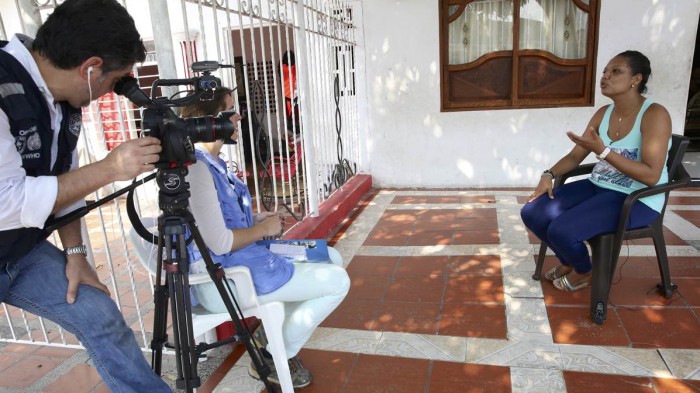New Evidence Found That Zika Kills Off Brain Cells
It’s still uncertain whether Zika is to blame for a scary increase in infants with small brains, but now researchers say they think they know how it could happen.
Scientists say they infected cells in a lab with the Zika virus and found it selectively harmed a kind of cells in the brain’s cortex, causing them to die, but didn’t harm other cell types.
The work “offers among the strongest evidence yet of how Zika is harming fetuses,” according to the Washington Post. If the virus kills cortex cells it would explain why the infants are born with small brains.
The Zika virus is spread by mosquitoes and began ricocheting around South America last year. A substantial uptick in the number of cases of microcephaly in Brazil suggested there was a link to the virus, and Colombian researchers say they are finding birth defects in that country, too.
The World Health Organization has sent a team to Colombia to investigate the link between Zika and microcephaly in roughly 5,000 pregnant women, according to the New York Times.
(Read more: New York Times, Nature, Washington Post)

Keep Reading
Most Popular
Large language models can do jaw-dropping things. But nobody knows exactly why.
And that's a problem. Figuring it out is one of the biggest scientific puzzles of our time and a crucial step towards controlling more powerful future models.
The problem with plug-in hybrids? Their drivers.
Plug-in hybrids are often sold as a transition to EVs, but new data from Europe shows we’re still underestimating the emissions they produce.
Google DeepMind’s new generative model makes Super Mario–like games from scratch
Genie learns how to control games by watching hours and hours of video. It could help train next-gen robots too.
How scientists traced a mysterious covid case back to six toilets
When wastewater surveillance turns into a hunt for a single infected individual, the ethics get tricky.
Stay connected
Get the latest updates from
MIT Technology Review
Discover special offers, top stories, upcoming events, and more.